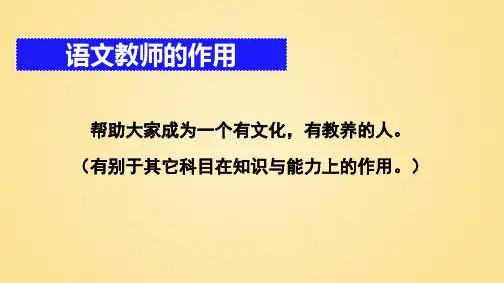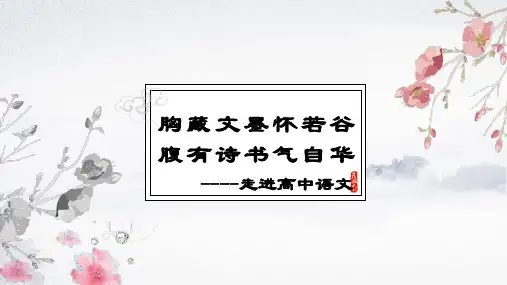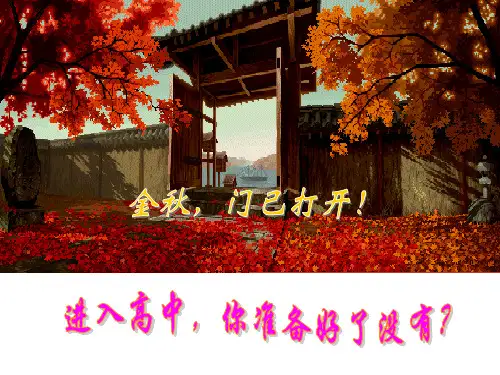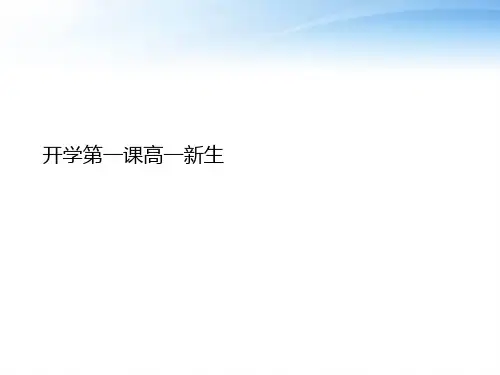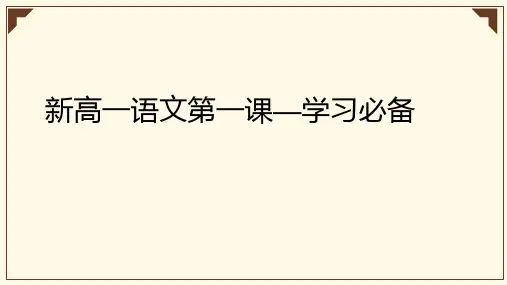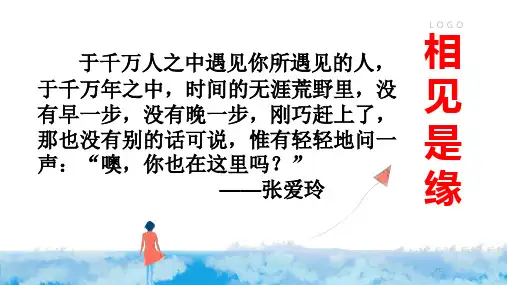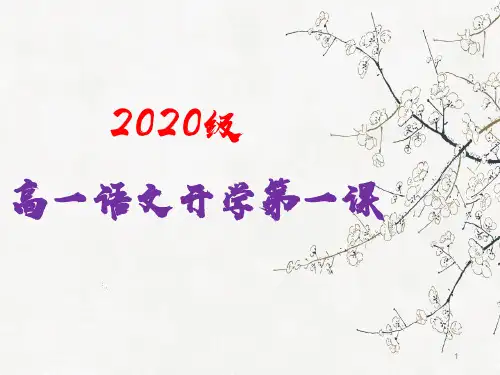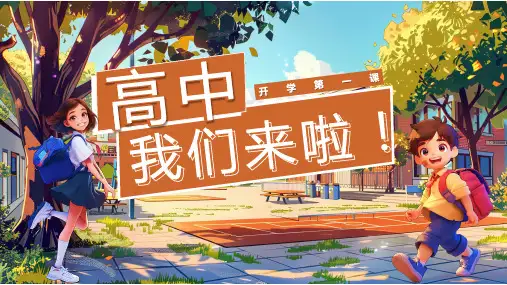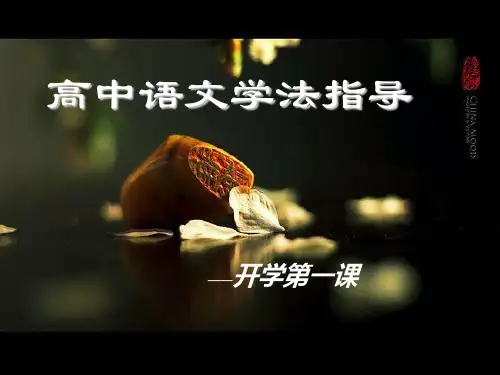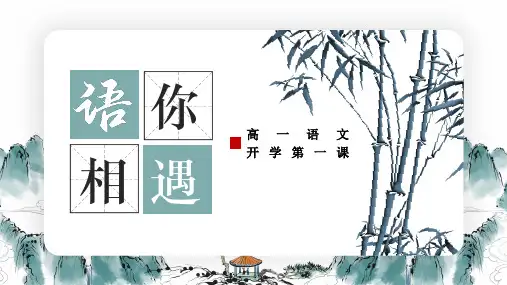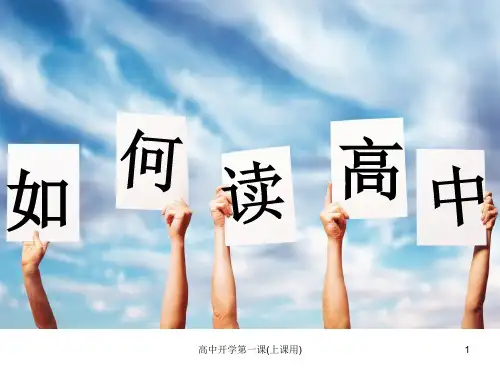一个五六岁的小姑娘,跟着爸爸妈妈去旅行,当他们乘坐的汽车 行驶在南京长江大桥上的时辰,小姑娘趴在车窗玻璃上,看着茫茫的 江水,奶声奶气地吟出了两句古诗:“黄河之水天上来,奔流到海不 复回。”这两句诗尽管用错了地方,但他究竟还有些许古诗词的积累, 比那游览长城的小伙子要高明多了。
七十老翁产一子人曰非是也家业 尽付与女婿外人不得干预
批是:人多、病少、财富。财主非常高兴,余下的七 钱银子就不想给了。第二天,秀才把对联加上了标点, 财主一读,当场气晕。
改成了:“养猪大如山老鼠,头头死,” “酿酒缸缸好造醋, 坛坛酸。” “人多病,少财富。”
3、句趣
《还珠格格》中表达爱情的语言是“我好喜欢好喜 欢你”。虽传递着爱情信息,但显得苍白无力。而 汉乐府《上邪》则不然,简短的话语施展阐发了爱 情的忠贞。“上邪,我欲与君相知,长命无绝衰。 山无陵,江水为竭,冬雷阵阵,夏雨雪,天地合, 乃敢与君绝。”
When you are old
When you are old and grey and full of sleep. And nodding by the fire, take down this book. And slowly read, and dream of the soft look Your eyes had once, and of their shadows deep. How many loved your moments of glad grace. And loved your beauty with love false or true. But one man loved the pilgrim soul in you. And loved the sorrows of your changing face; And bending down beside the glowing bars, Murmur, a little sadly, how Love fled And paced upon the mountains overhead And hid his face amid a crowd of stars.
